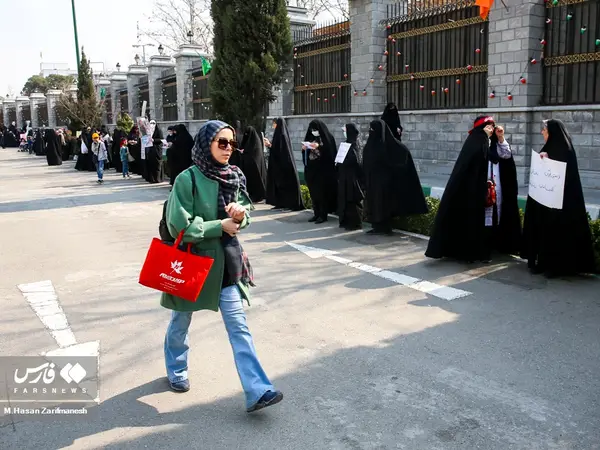Mostafa Abroshan, an Iranian sociologist says that young Iranians do not trust the government, as they lost hope in the future.
Abroshan warned the Iranian government that trust in the ruling establishment cannot be restored by decrees and orders. While corruption and favoritism have enriched a small minority, poverty has risen to unprecedented levels.
The sociologist asked: "How can young Iranians trust the government while most of them do not have a job?" He argued that "The distrust is rooted in the country's crisis of management. In order to solve this problem, the government needs to appoint qualified individuals with the right kind of specialization to key jobs, and make knowledge and rationality govern the country's institutions."
Abroshan was referring to statements by Iranian officials including President Ebrahim Raisi, who promised repeatedly during the past two years to create one million jobs annually for young Iranians but broke their promise. Raisi has even claimed that those jobs have been created!
Also in some cases, officials make outlandish promises without thinking of the implications of what they say. On Wednesday, Telecommunications Minister Isa Zarepour promised that his ministry will make sure Internet speed increases by 80-fold this year.
The astonishing promise was made while people suffer from extremely low Internet speed and the banning of nearly all social media platforms on which many small businesses and more than 10 million families depend for a living.
In another example, Iranian academic Mostafa Mehraeen complained that young Iranians simply want to live a normal life but as soon as they criticize the authorities’ impolite treatment of the youth, security forces attack them and the officials accuse them of being drug addicts.
Abroshan also said that social capital (government legitimacy) is the spirit of the nation. People learn about it during the process of their socialization. It lends meaning to human communication and boosts solidarity and social participation. He added that mutual trust between the people and government is one of the most important factors of social capital which makes cooperation between various parts of the society possible.
Trust will be enhanced if the people see that the government meets their expectations, Abroshan said, adding that otherwise the people come to believe that the country's economic and social institutions do not represent their views and expectations. As a result, distrust of the government builds up and the ruling establishment loses all legitimacy.
Explaining the situation of trust in government, Abroshan said, "when the police do not respect citizens and treat them with violence as we have seen, the situation triggers anger and leads to behaviors such as attacking and overturning police vehicles." He added that when he, as a sociologist, criticizes the situation out of sympathy for the people and the government, officials accuse him of portraying a disparaging image of the social situation.
He reiterated, "Mutual trust between the people and government no longer exists. "The government constantly calls on the people to fulfil their social responsibilities, but at the same time, constantly undermines their citizenship rights." He added: "The distribution of wealth in the Iranian society is unfair and inequality has polarized the society."
Abroshan further pointed out: "Currently Iranian citizens and the government refuse to recognize each other. As a result, any event that hurts the people's feeling can trigger a social
